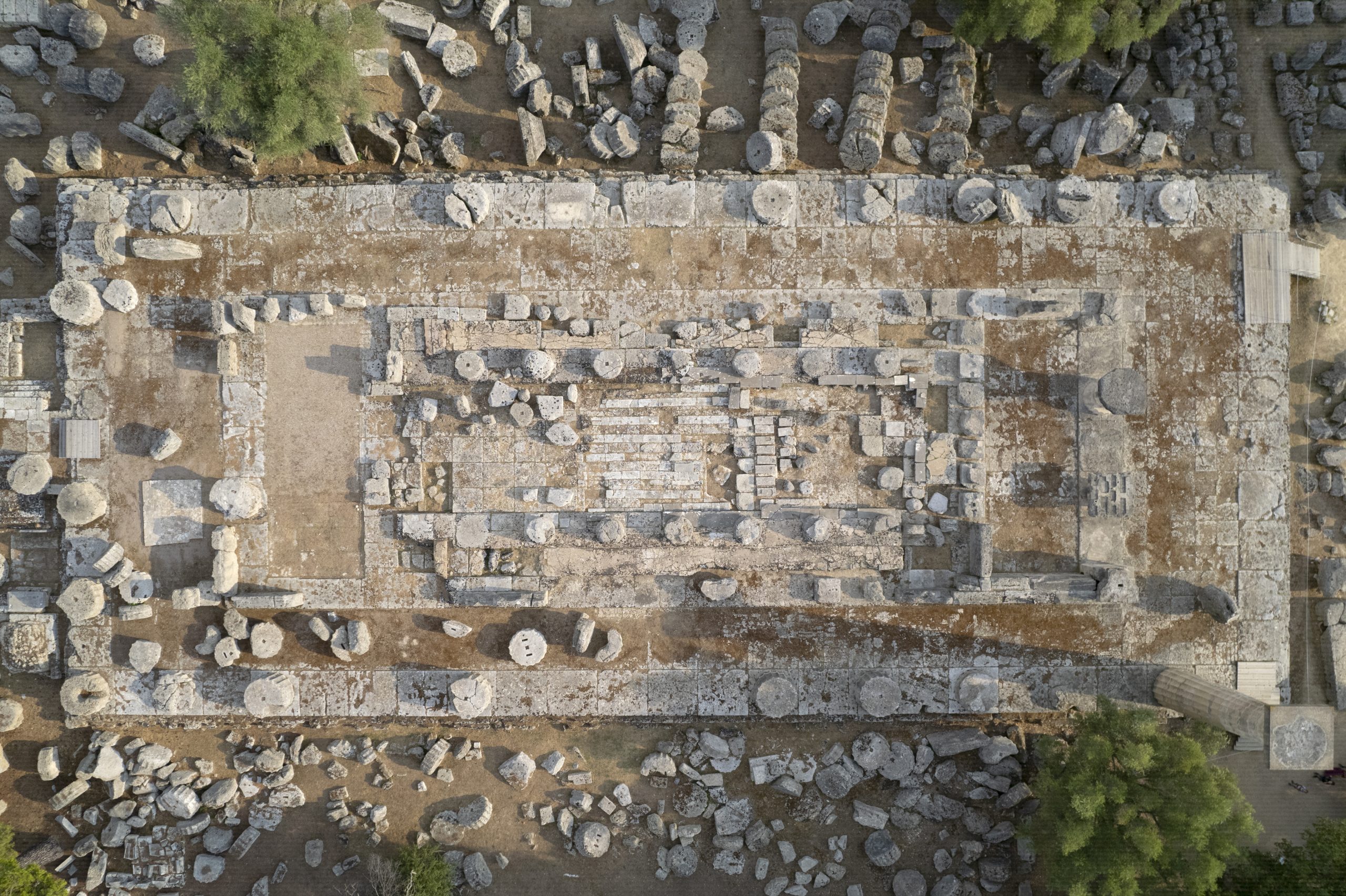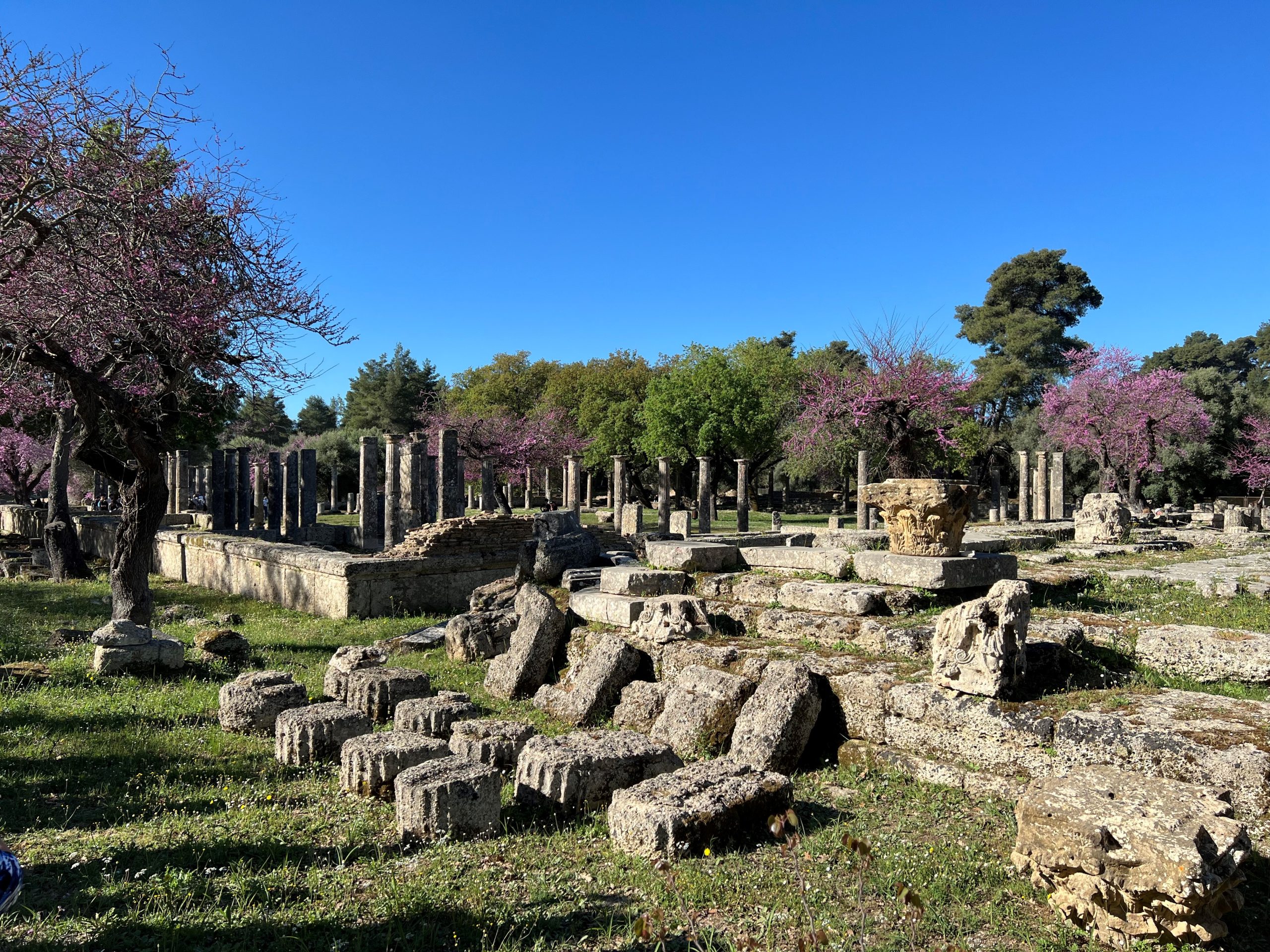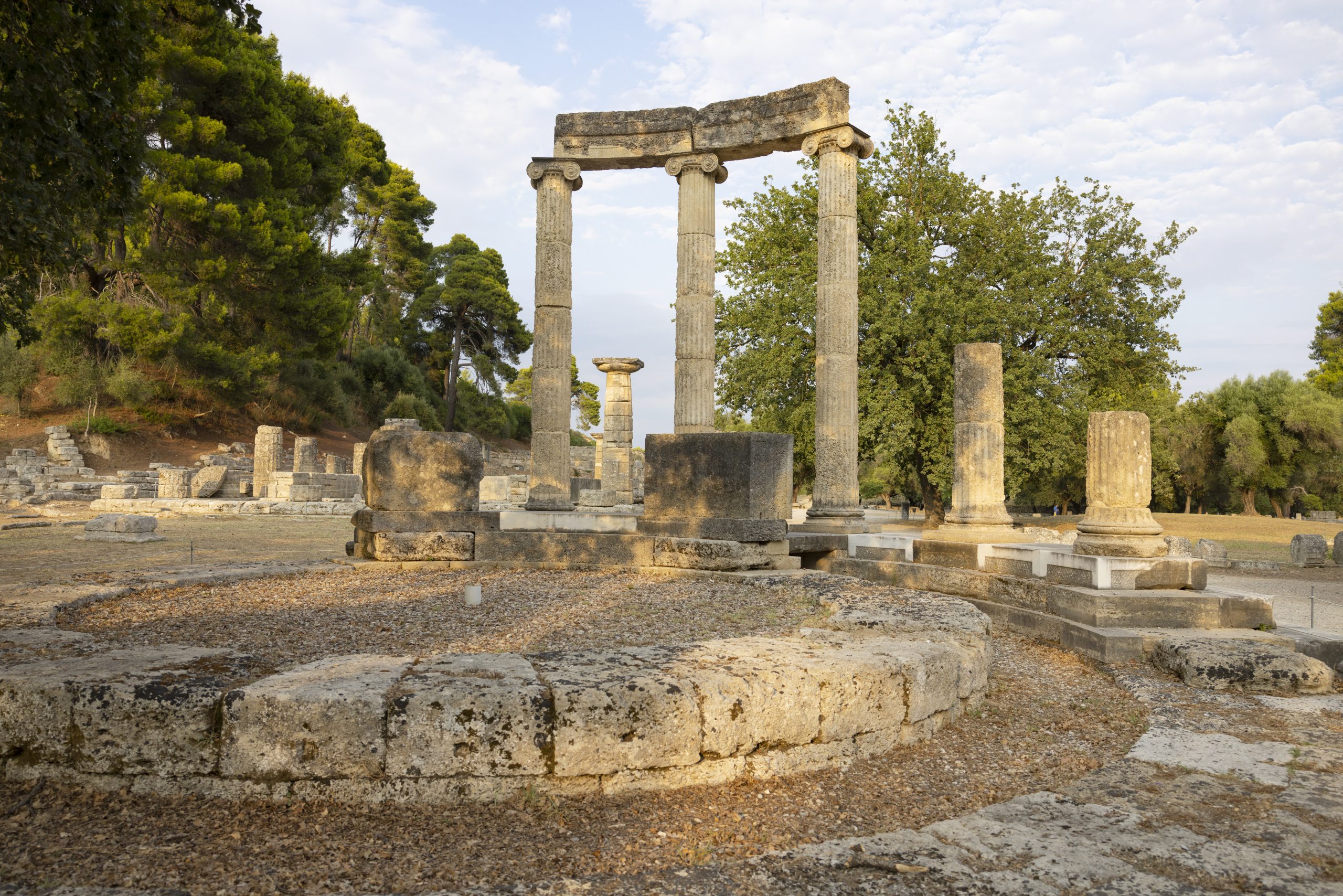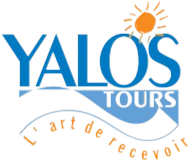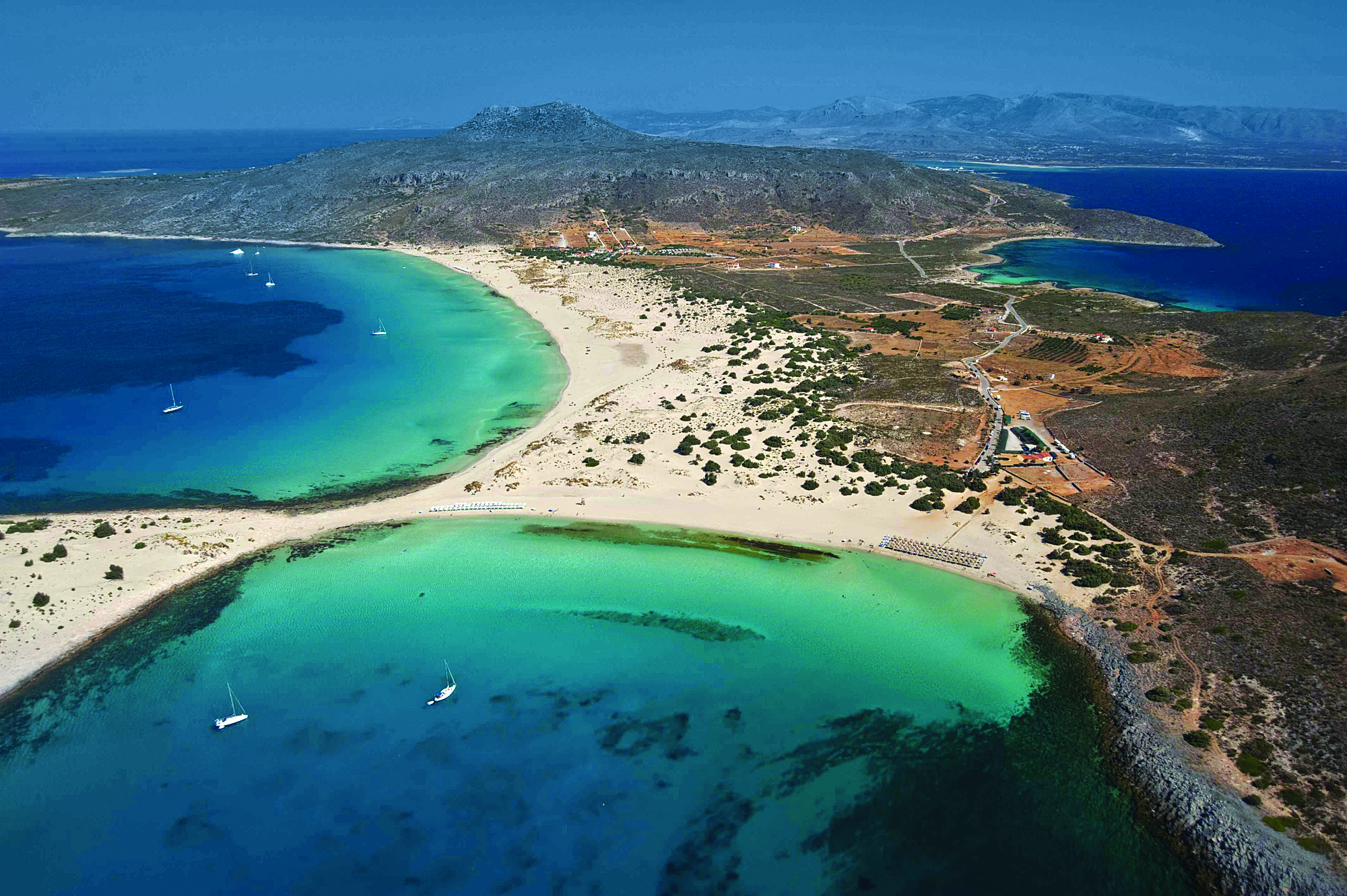A land of diverse landscapes adorned with orchards and olive groves, the Peloponnese is an ideal destination for those seeking a blend of culture and relaxation.
After crossing the canal that separates it from mainland Greece, you’ll arrive in Corinth, where you can explore the ruins of ancient Corinth nestled at the foot of Acrocorinth, the local Acropolis. From the hilltop, you’ll be rewarded with a breathtaking view of the isthmus and the gulf.
Next, venture into the fertile Argolid region and visit the city of Nafplio, the first capital of the modern Greek state. Admire its famous Bourtzi, a Venetian fort situated in the middle of the sea, as well as the hilltop forts of Akronafplia and Palamidi.
Nearby, discover the acropolis of Mycenae, the city renowned for its gold according to Homer. Within its ramparts lies the palace of the legendary King Agamemnon, the celebrated hero of Homer’s Iliad. The Trojan War was begun from here.
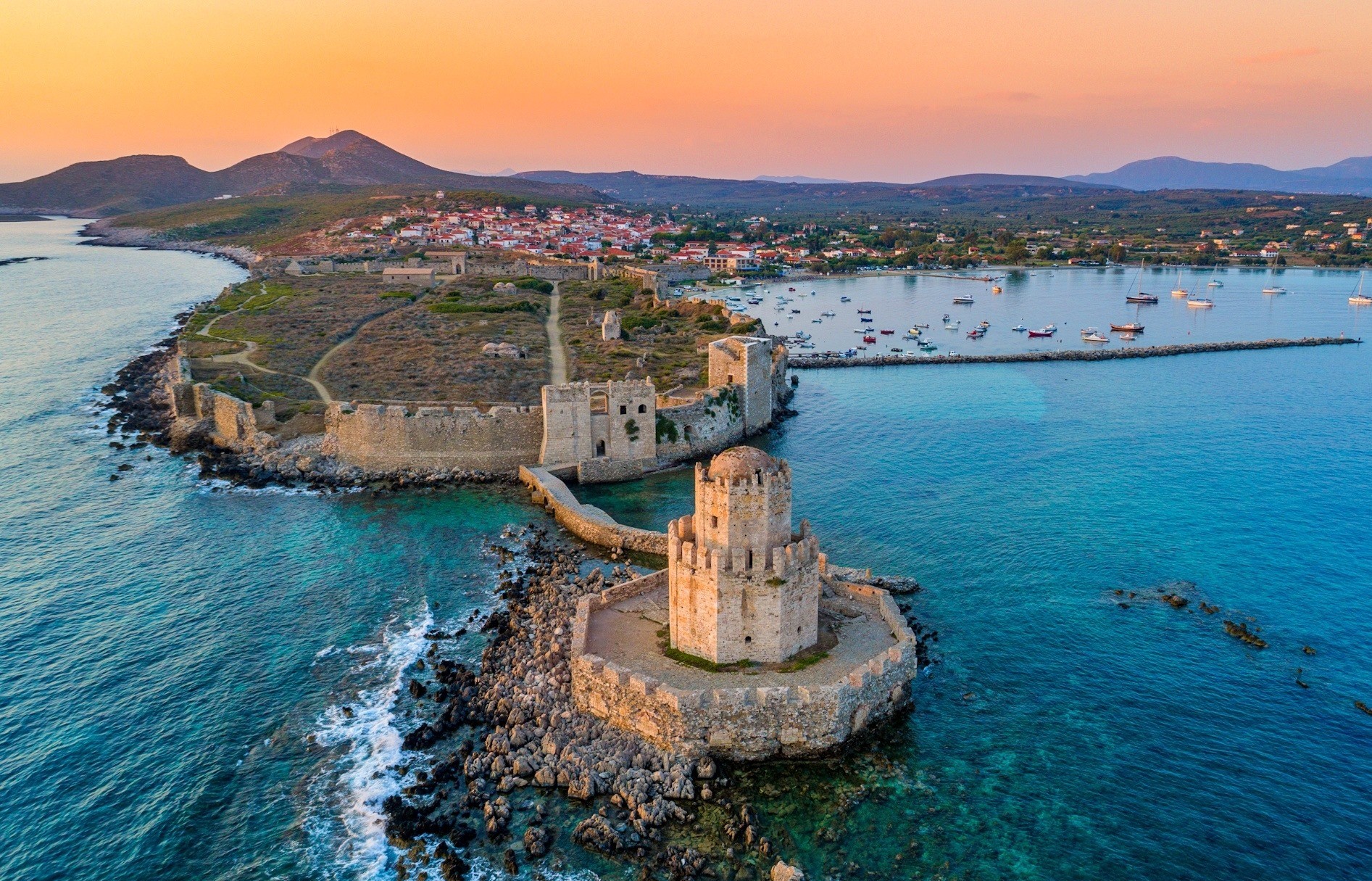
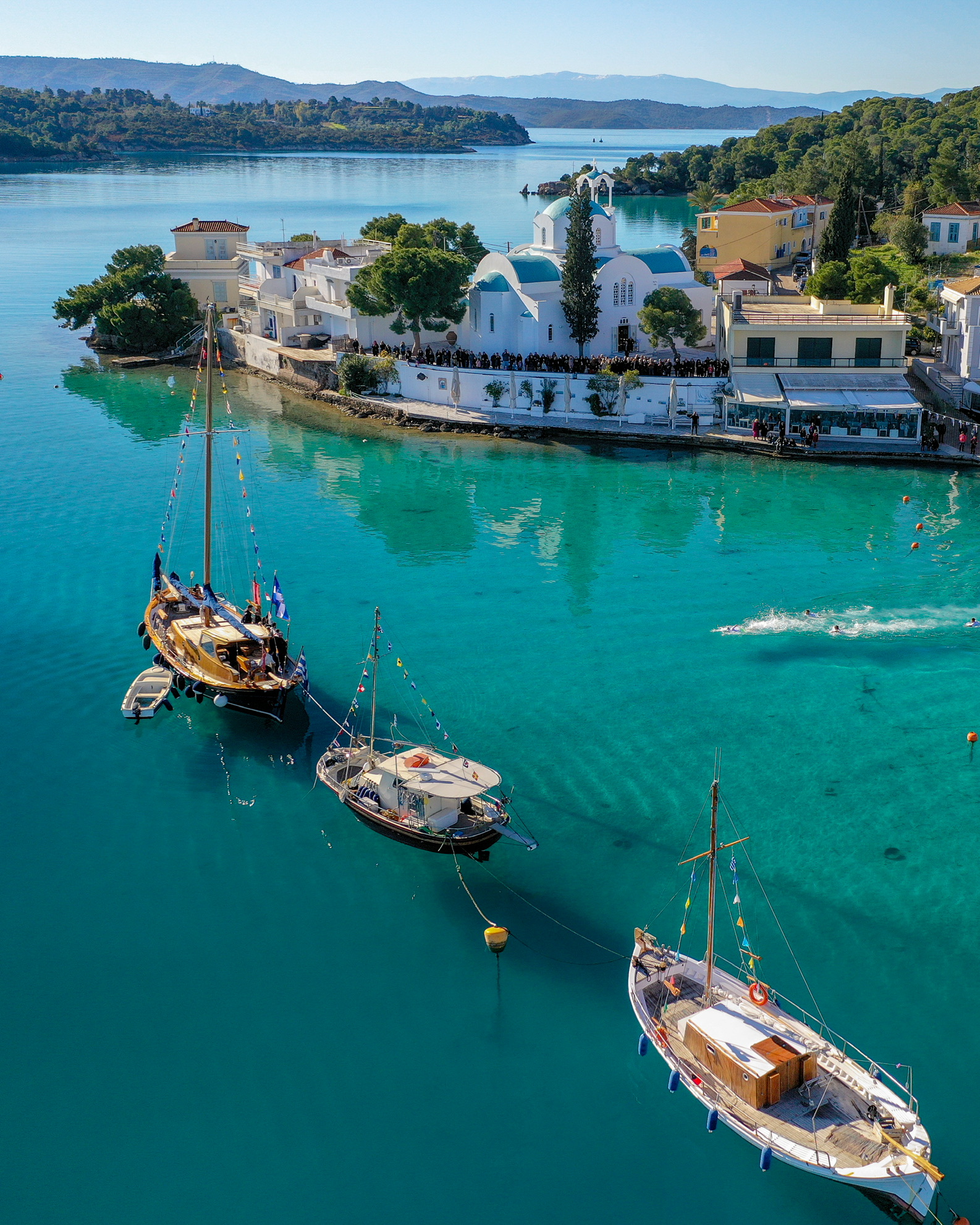
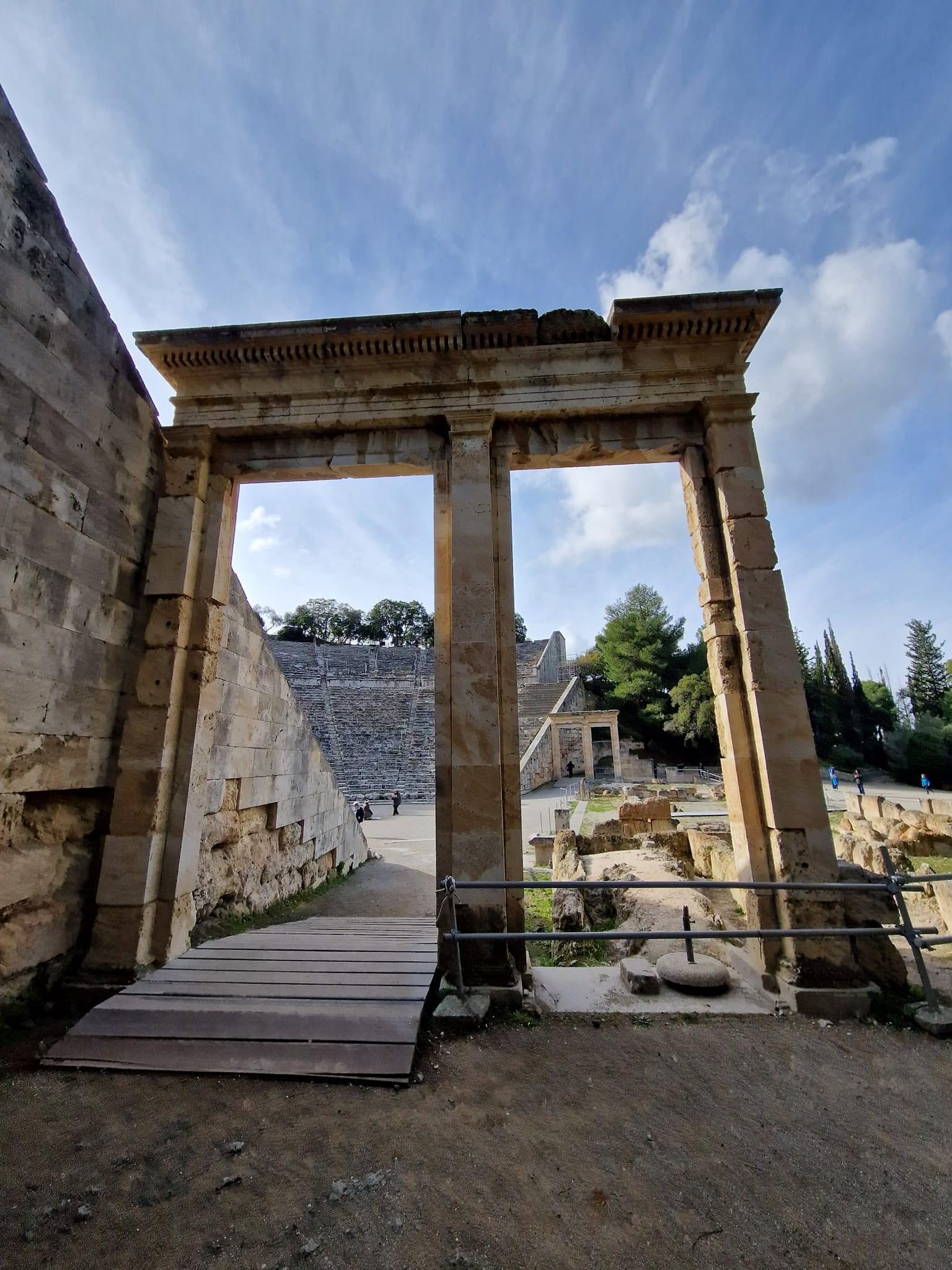
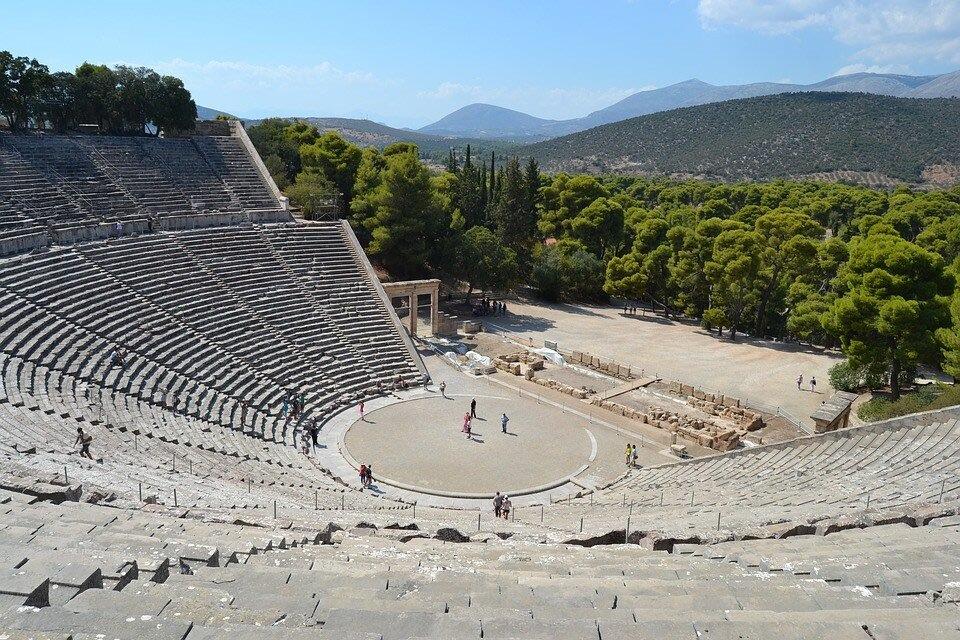
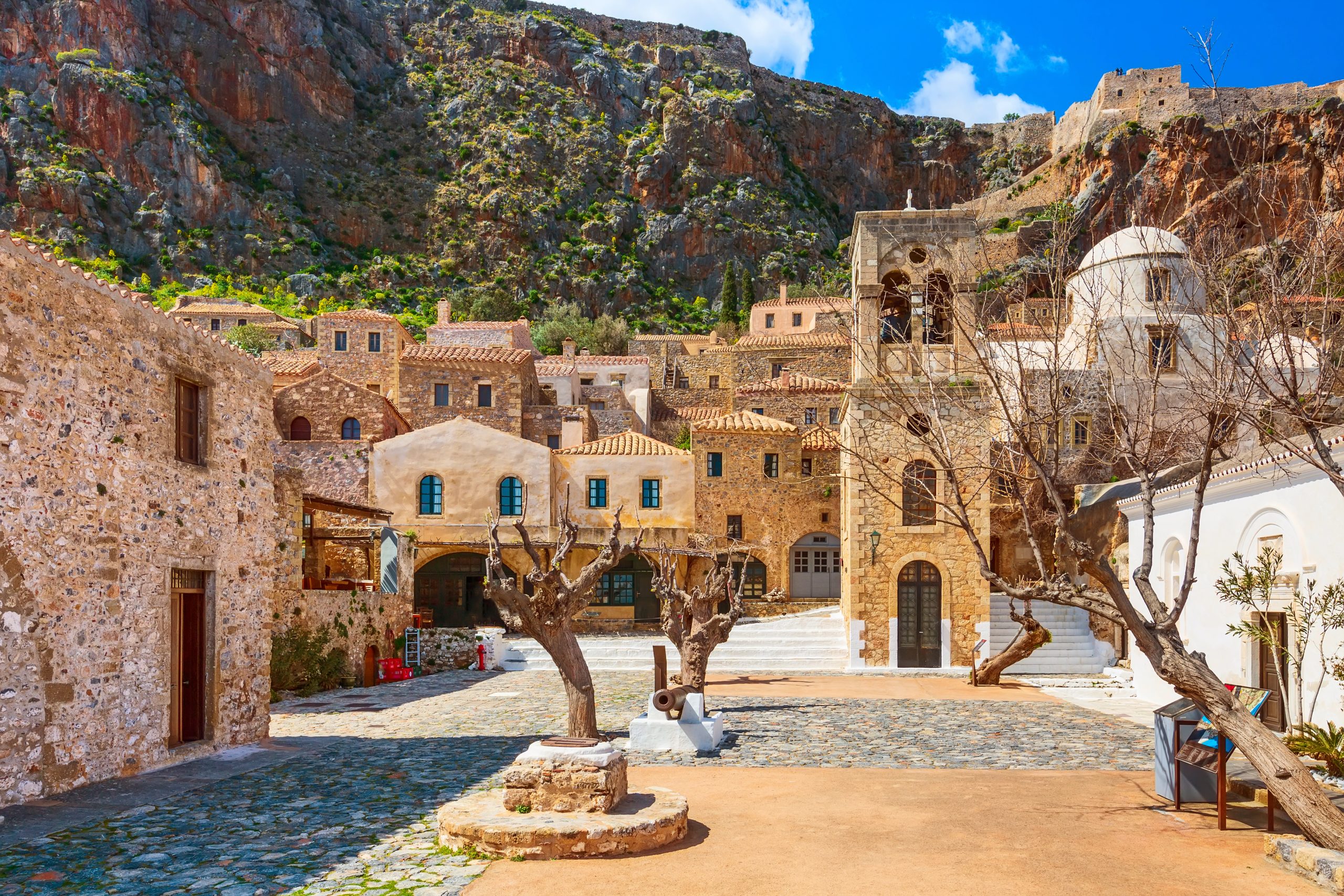
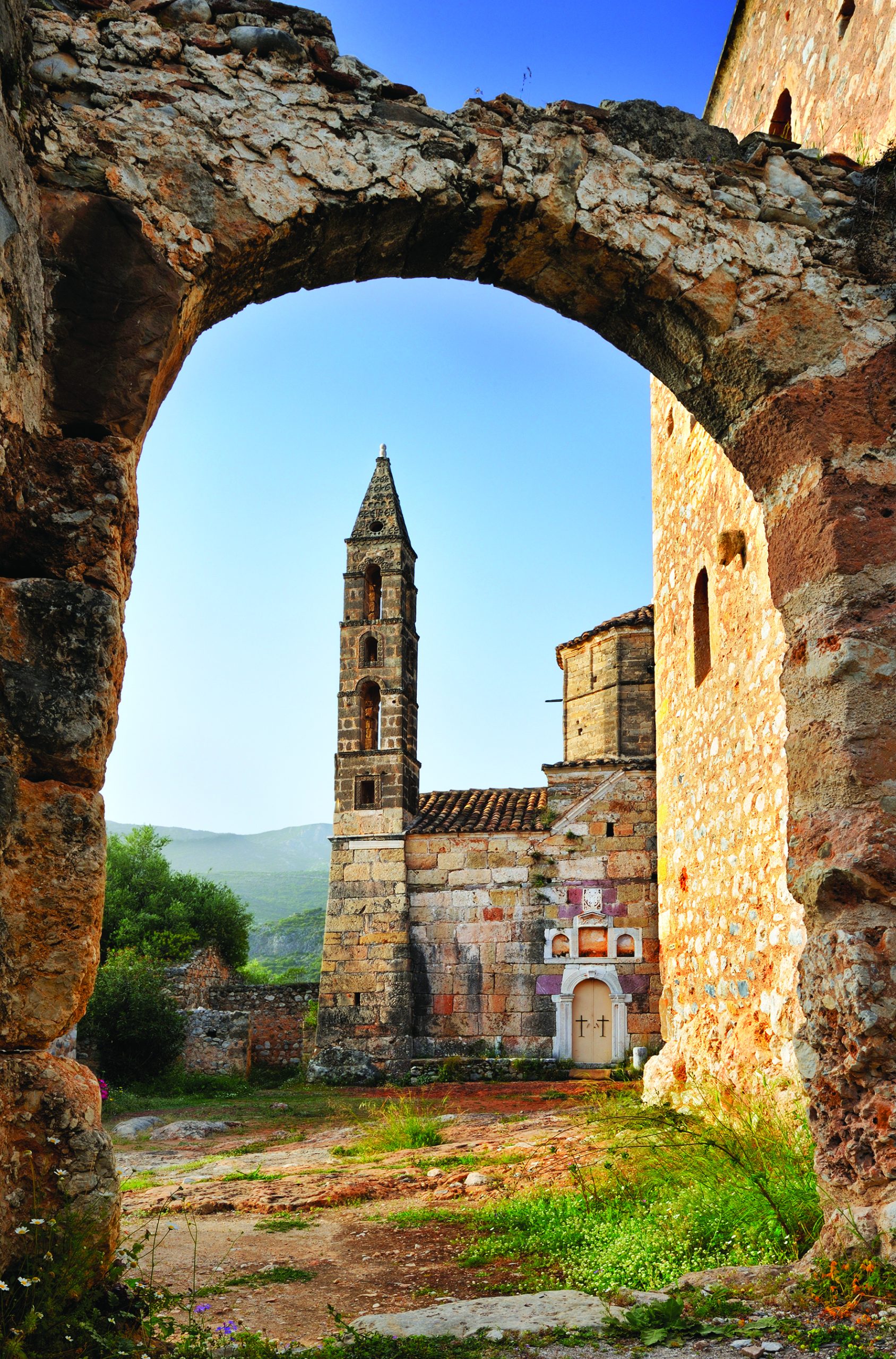
Don’t miss the ancient theater of Epidaurus and the sanctuary of Asclepius, dedicated to the god of medicine. This UNESCO World Heritage site boasts exceptional acoustics, which you can experience firsthand by climbing to the back row and listening to visitors in the center of the orchestra. The tradition of staging theatrical performances in this theater has endured for millennia and a major festival of performances takes place every summer, attracting crowds from around the world.
Heading south, you’ll find yourself in the Laconia region, home to the citadel of Monemvassia, a city carved from the rock and nicknamed the “Gibraltar of the East.” Explore its hidden treasures, savor its unique gastronomy, and immerse yourself in the infinite blue of the sea.
Next, venture into the fertile Argolid region and visit the city of Nafplio, the first capital of the modern Greek state. Admire its famous Bourtzi, a Venetian fort situated in the middle of the sea, as well as the hilltop forts of Akronafplia and Palamidi.
Nearby, discover the acropolis of Mycenae, the city renowned for its gold according to Homer. Within its ramparts lies the palace of the legendary King Agamemnon, the celebrated hero of Homer’s Iliad. The Trojan War was begun from here.
Don’t miss the ancient theater of Epidaurus and the sanctuary of Asclepius, dedicated to the god of medicine. This UNESCO World Heritage site boasts exceptional acoustics, which you can experience firsthand by climbing to the back row and listening to visitors in the center of the orchestra. The tradition of staging theatrical performances in this theater has endured for millennia and a major festival of performances takes place every summer, attracting crowds from around the world.
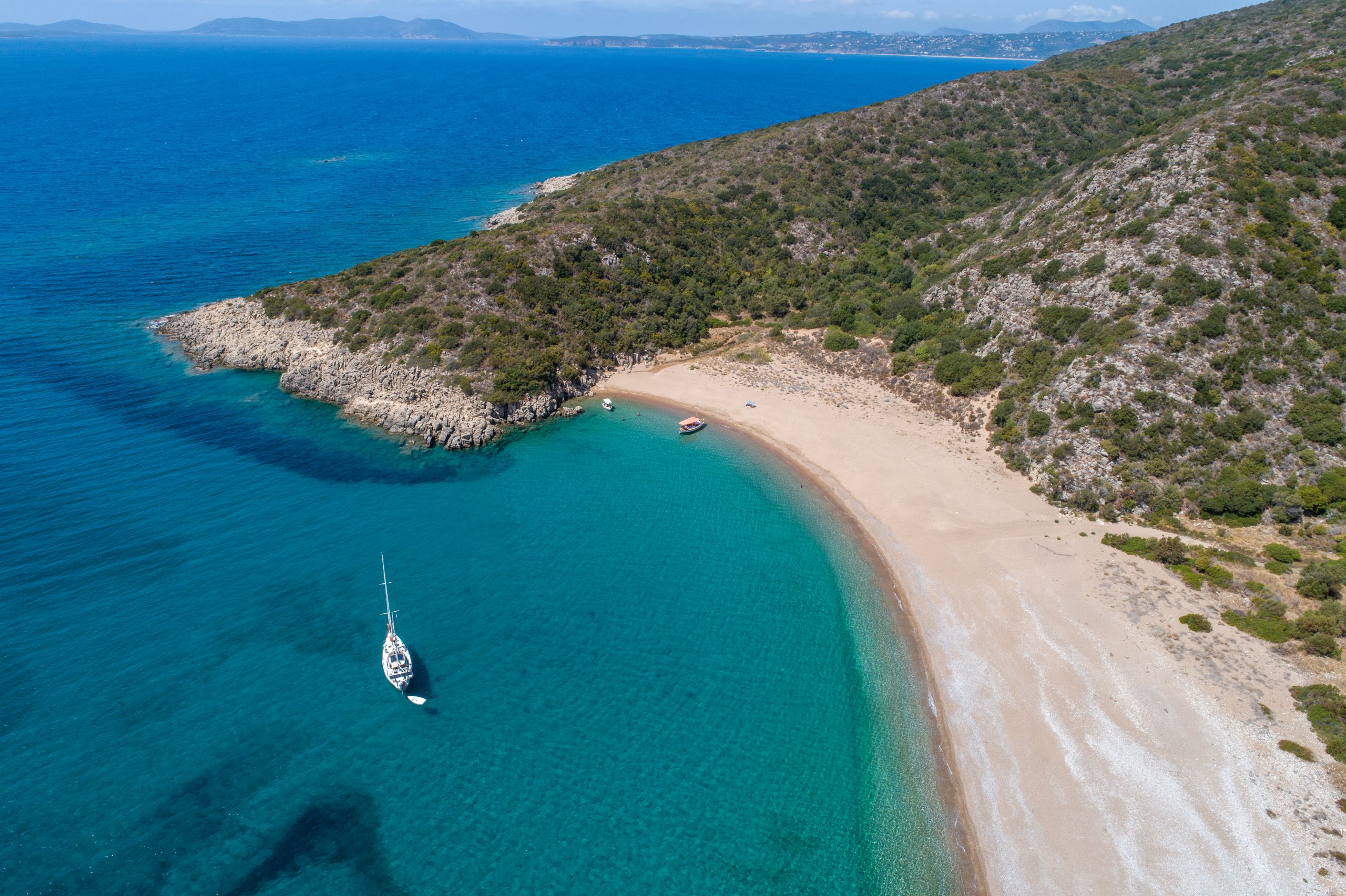
The Byzantine city of Mystras, a marvel of the Morea and the center of late Byzantine power, stands on Mount Taygetos overlooking the Sparta region. Sparta, the birthplace of renowned ancient Greek warriors like King Leonidas, is located on the Laconian plain, where the Greek Olive and Olive Oil Museum now resides.
Elafonissos, an idyllic islet once used as a base by pirates and privateers, is famous for its exotic landscape and, above all, Simos beach. Dive into its crystal-clear waters and relax on its sandy shores surrounded by a cedar forest.
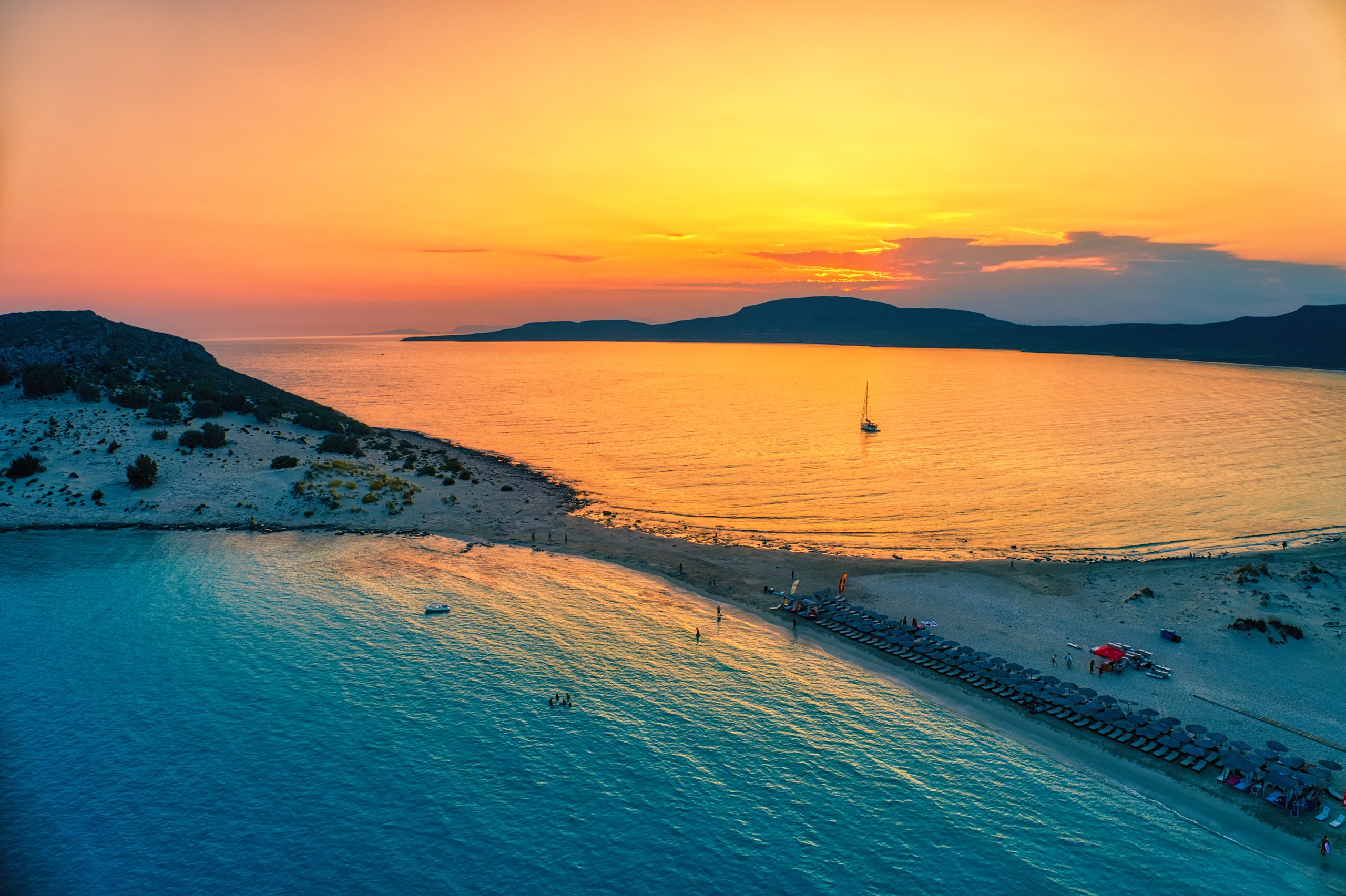
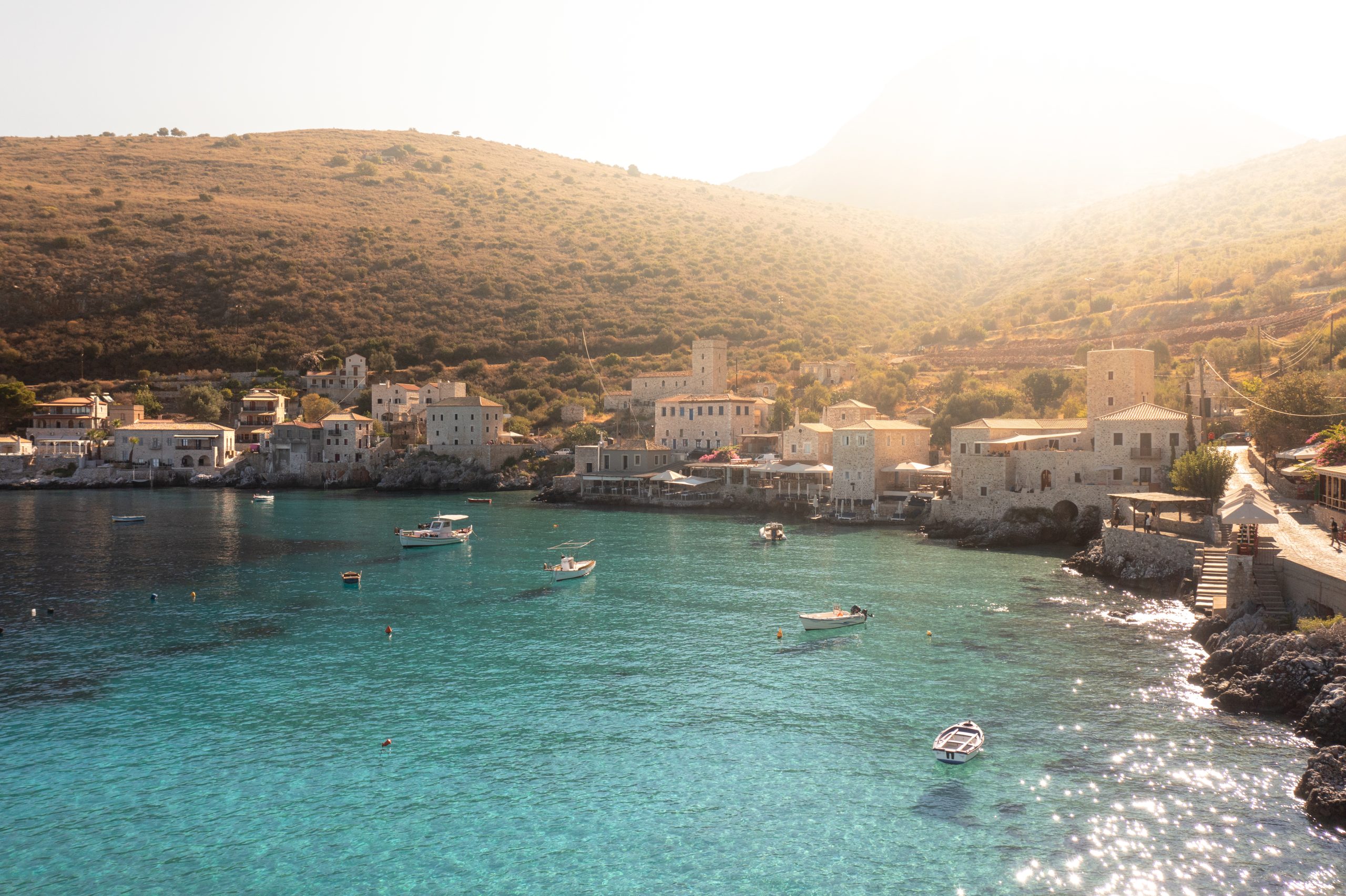
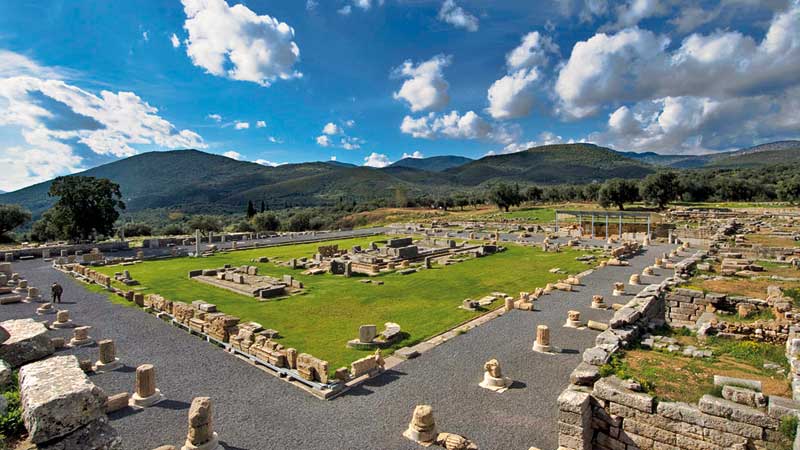
Gythio, a picturesque port town, is one of the most iconic locations in the Peloponnese. Its harbor was once a commercial hub, and even today it welcomes numerous ships and cruise liners. Stroll through the streets lined with stone houses perched on the mountainside, and discover charming cafés and tavernas where you can savor local delicacies.
In the Mani region, explore Gerolimenas, a gateway to the laconic Mani region. Discover Vathia with its towers, the Diros caves, and Cape Tainaro, where you can hike to the lighthouse, the southernmost point of continental Europe with a 45-minute walk.

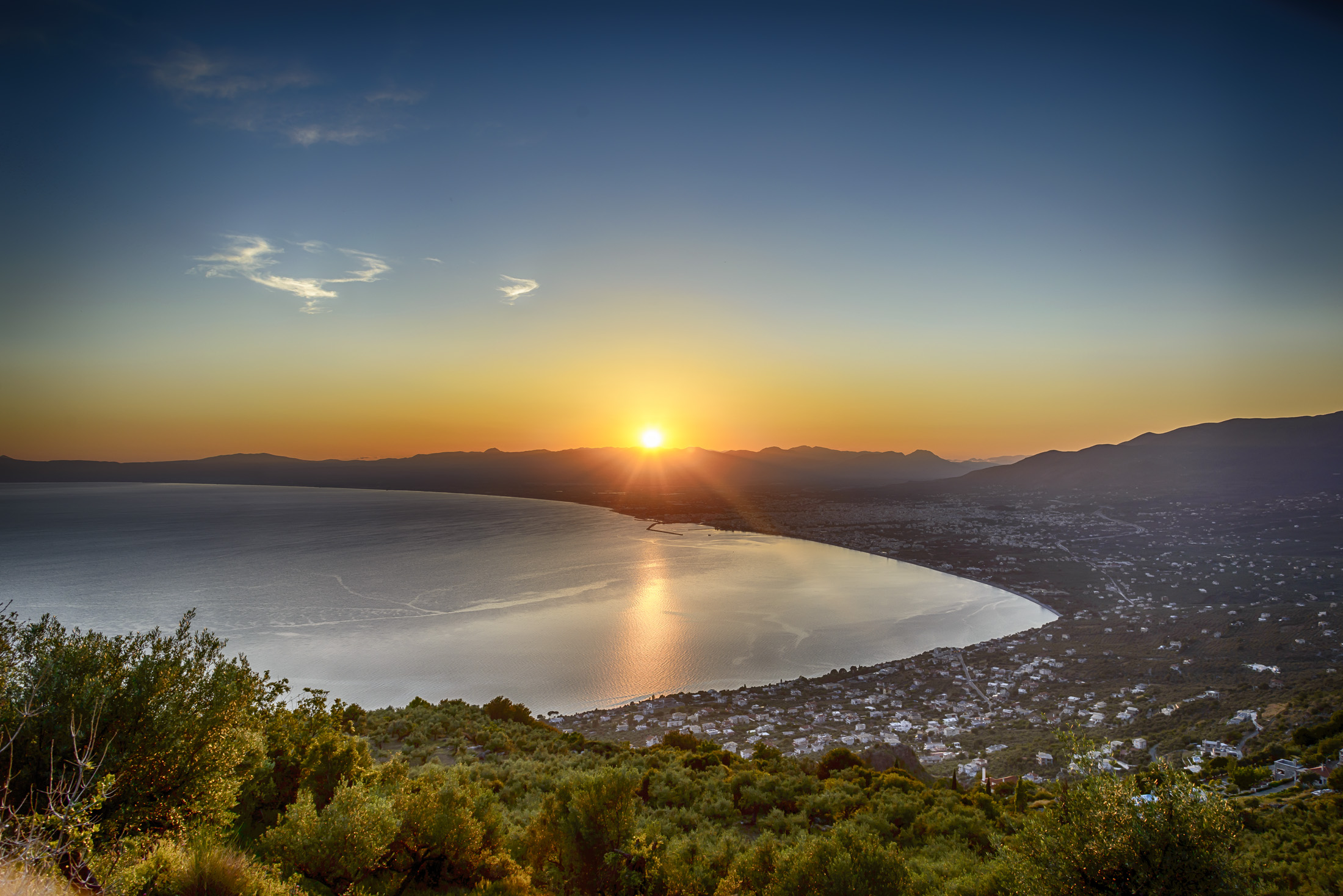
Another must-see in the Messinian region is ancient Messene, one of the best-preserved cities of ancient Greece, located just 30 kilometers from Kalamata. Wander through its temples, gymnasiums, and ancient theater. Kalamata itself is known for its seaside promenade and cultural events such as the International Dance Festival in summer. Explore art galleries, traditional cafés, and experience the city’s vibrant nightlife. Kalamata is accessible by direct flight from Paris.
If you’re near Kalamata, visit Stoupa, a small seaside village nestled in the foothills of Mount Taygetos, full of olive groves. This would become your retreat: enjoy its charming cafés, bars, and tavernas along the waterfront. Methoni is also worth a visit, with its renowned Venetian castle, one of the largest in the Mediterranean, where ancient and modern elements seamlessly blend. From the coast, you can spot the island complex of Oinousses, known for its lush greenery and rare animal species. Koroni is another castle lover’s destination. Swim in the emerald waters of the Ionian Sea and choose from a variety of high-quality accommodations, as the tourist infrastructure has significantly improved in recent years.
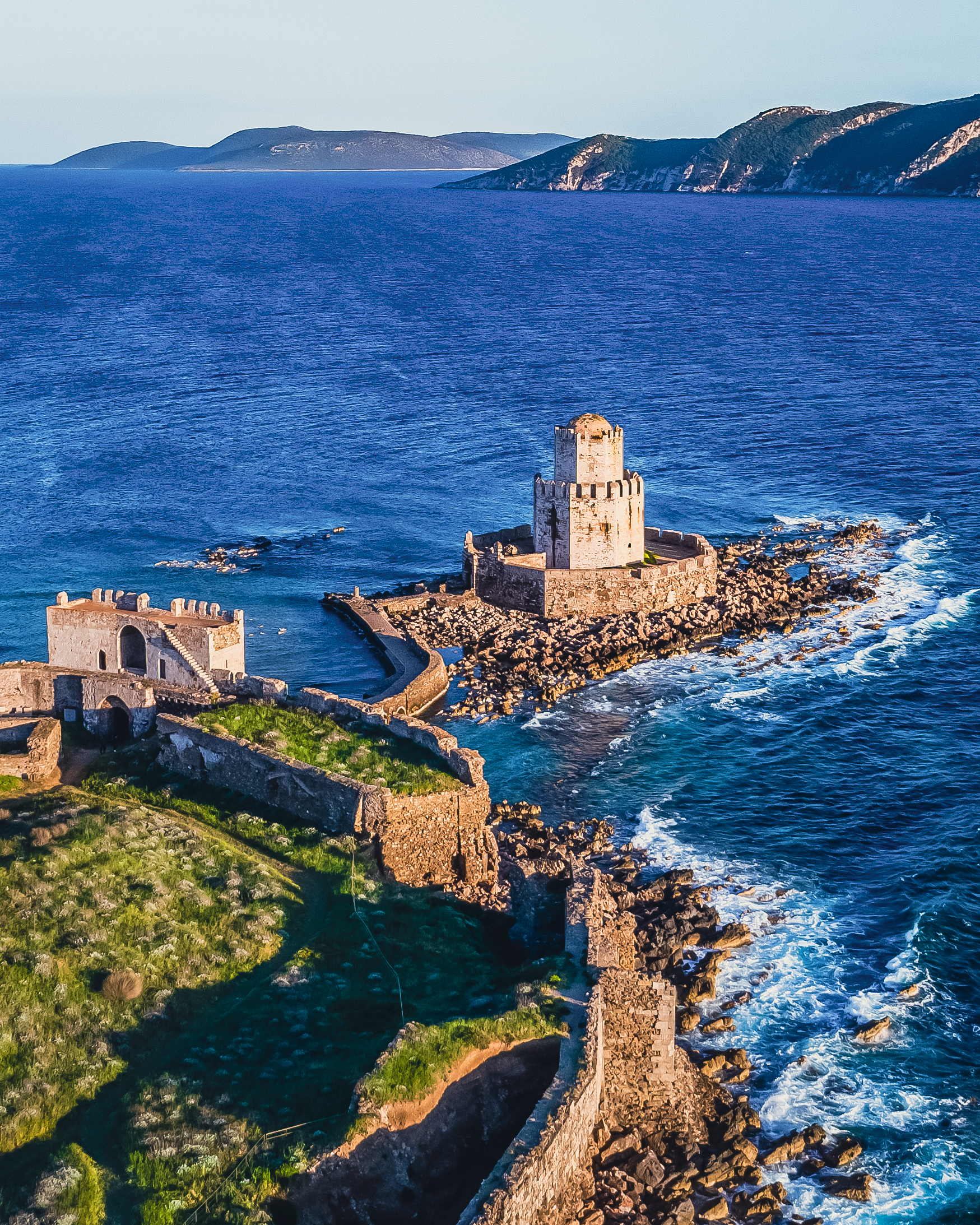
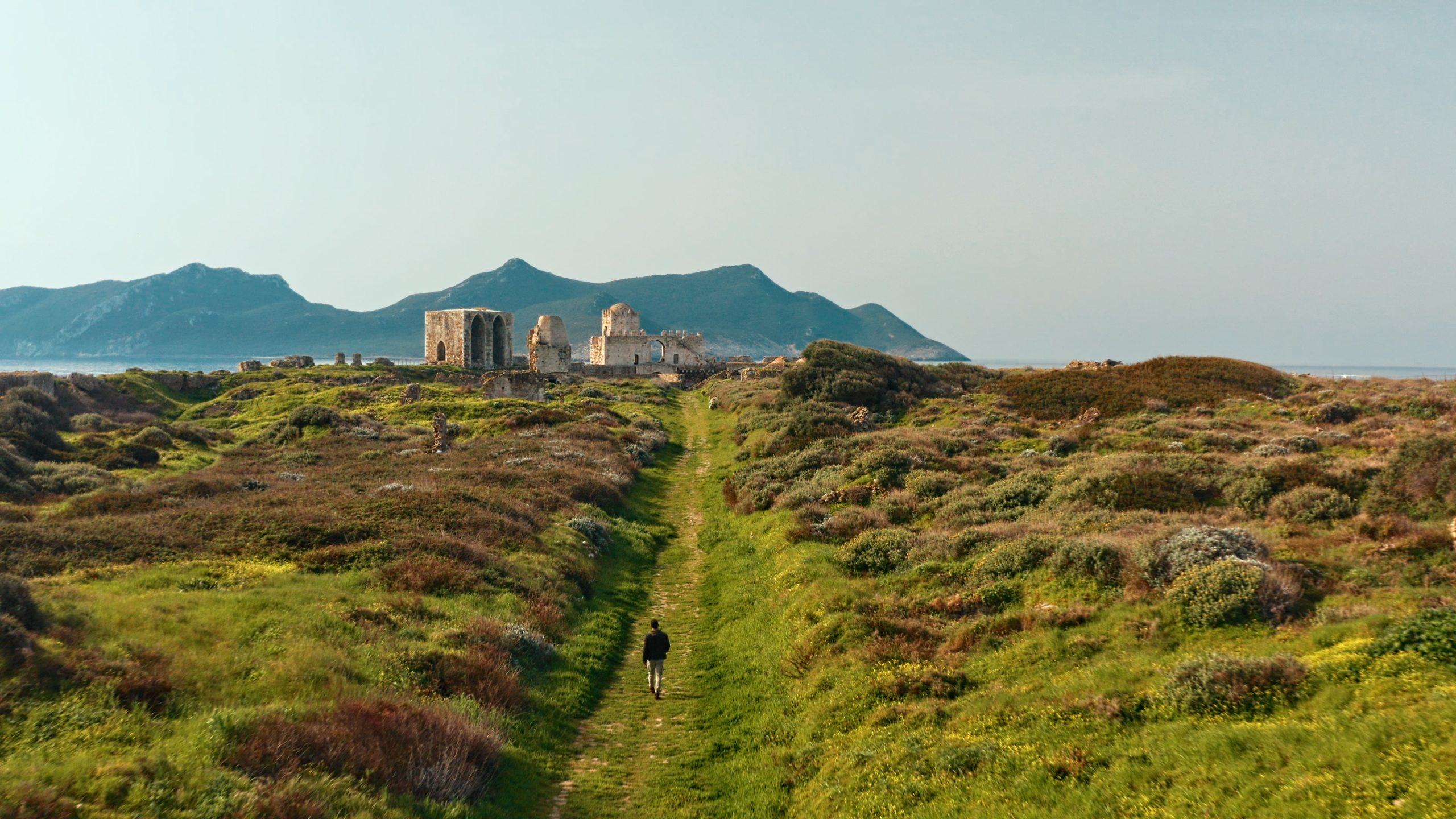
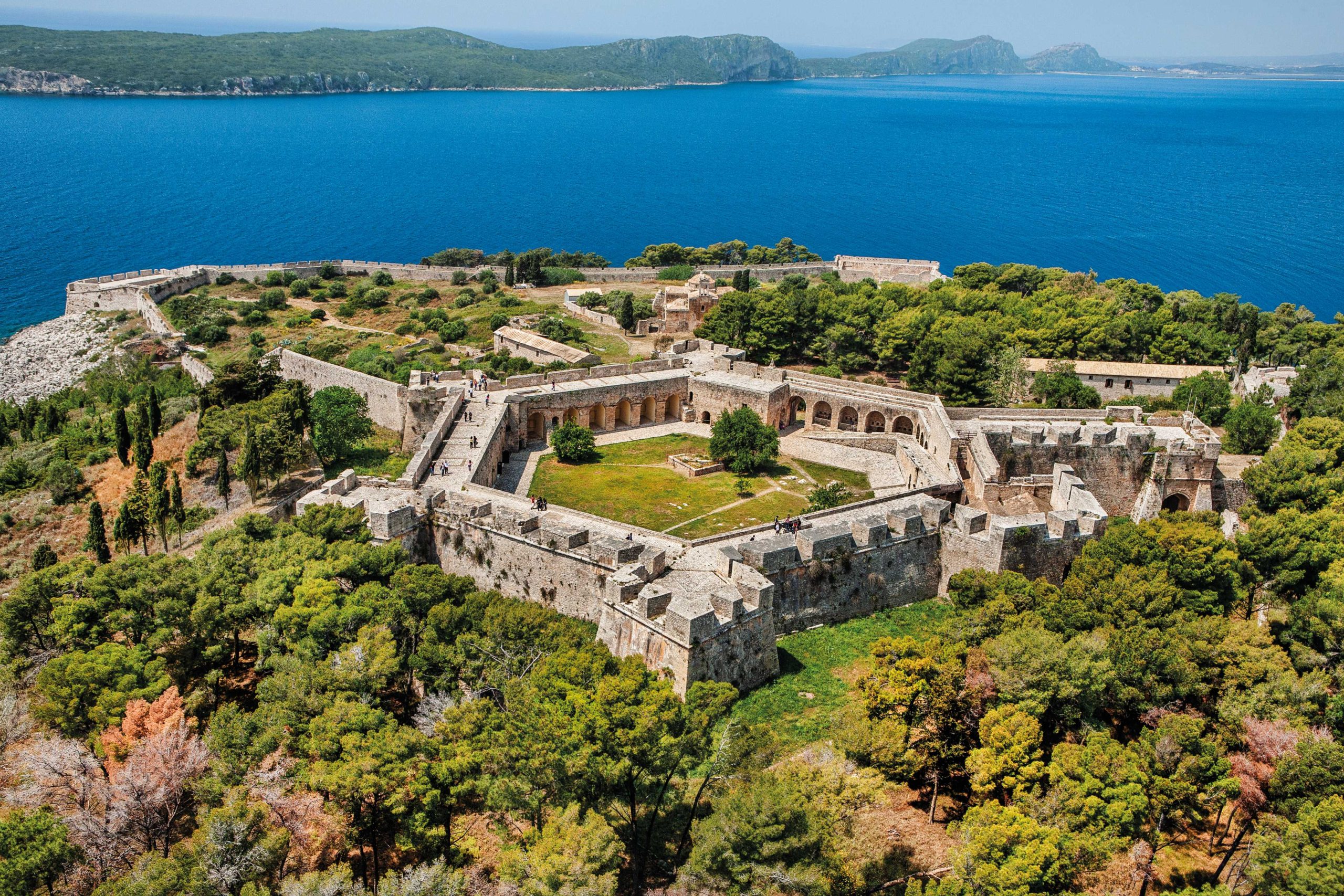
For history enthusiasts, Pylos, the palace of King Nestor, a companion of Odysseus and Agamemnon during the Trojan War, is a must-visit. This is where you’ll find the Costa Navarino Resort, offering enchanting golf courses and excellent conference facilities. Nearby, Voïdokilia is a shallow, sandy bay with remarkable geological symmetry. The Gialova lagoon, located not far away, is home to diverse wildlife, including migratory birds.
A little further north, in the region of Ilia, in the so-called “Valley of the Gods”, Olympia awaits you. This is the birthplace of the ancient Olympic Games, the greatest sporting event of antiquity, which united all Greeks every four years and thanks to which hostilities stopped so that everyone had the opportunity to participate. Today, the flame of the modern Olympic Games is lit on the same spot, travelling around the world until it reaches the country hosting the Games.
To unwind, swim at the expansive Kalogria beach, which stretches for almost 9 kilometers near Strofilia forest, a national reserve that provides refuge for numerous animals thanks to its wetlands, at a 45-minute distance from the regional capital, Patra.
In the heart of the Peloponnese, in the region of Arcadia, discover villages where time seems to have stood still, such as Dimitsana, Stemnitsa, and Vytina, with their cobbled streets and traditional cuisine made with local products. Don’t forget to visit Tripoli, the dynamic capital of Arcadia, known for its numerous squares, parks, and neoclassical buildings.
